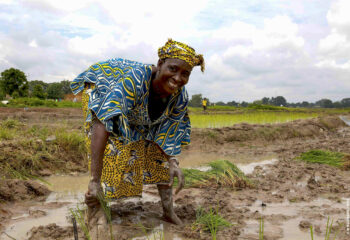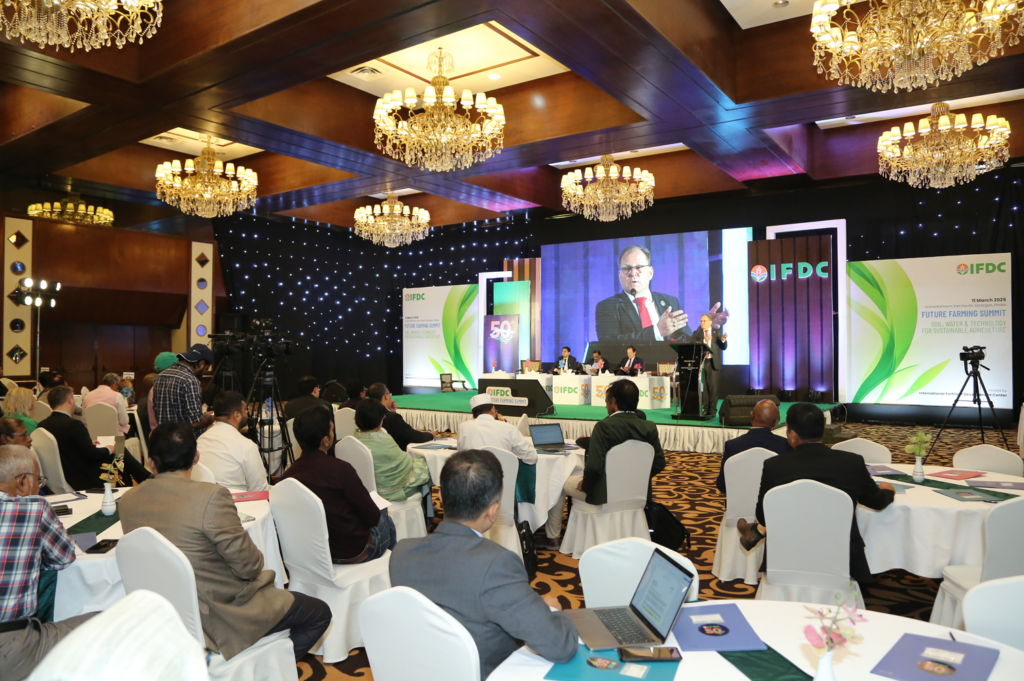
Agriculture in Bangladesh has made remarkable gains over the past five decades, with food production increasing by 320%, irrigated area expanding by 360%, and cropping intensity reaching 211%.
However, these gains have come at a steep cost. Fertilizer consumption has surged by 1800%, reaching 390 kg per hectare—the highest in South Asia—with partial factor productivity of as low as 10 kg of grain per kilogram of fertilizer applied. This increase, coupled with declining nutrient use efficiency (now at 39%, down from 80% in the 1970s), poses serious risks to soil health, water quality, and long-term productivity.
“Bangladesh must act now to double nutrient use efficiency, reduce pollution, and sustain productivity for the next generation.”
Dr. Yashpal Saharawat, IFDC PrincipAl Scientist
On March 11, IFDC convened policymakers, researchers, global experts, private sector leaders, and development partners for the Future Farming Summit at the Pan Pacific Sonargaon in Dhaka, Bangladesh, to address these critical challenges facing Bangladesh’s agriculture sector and explore solutions to enhance productivity while safeguarding long-term sustainability.
The summit focused on three key themes:
- Ensuring sustainable soil health and water management.
- Scaling research-based technologies and market innovations.
- Strengthening policy frameworks to secure Bangladesh’s agricultural future.
In his keynote address, IFDC President and CEO Henk van Duijn emphasized the urgency of adopting science-driven, climate-smart technologies to improve soil fertility and nutrient efficiency.
By leveraging scientific advancements and fostering collaborative action, he called on stakeholders to scale resilient, farmer-centered solutions that can enhance yields, reduce greenhouse gas emissions, and restore soil health for future generations.
His remarks set the tone for the event, emphasizing the importance of unified action to build more sustainable and inclusive food systems.
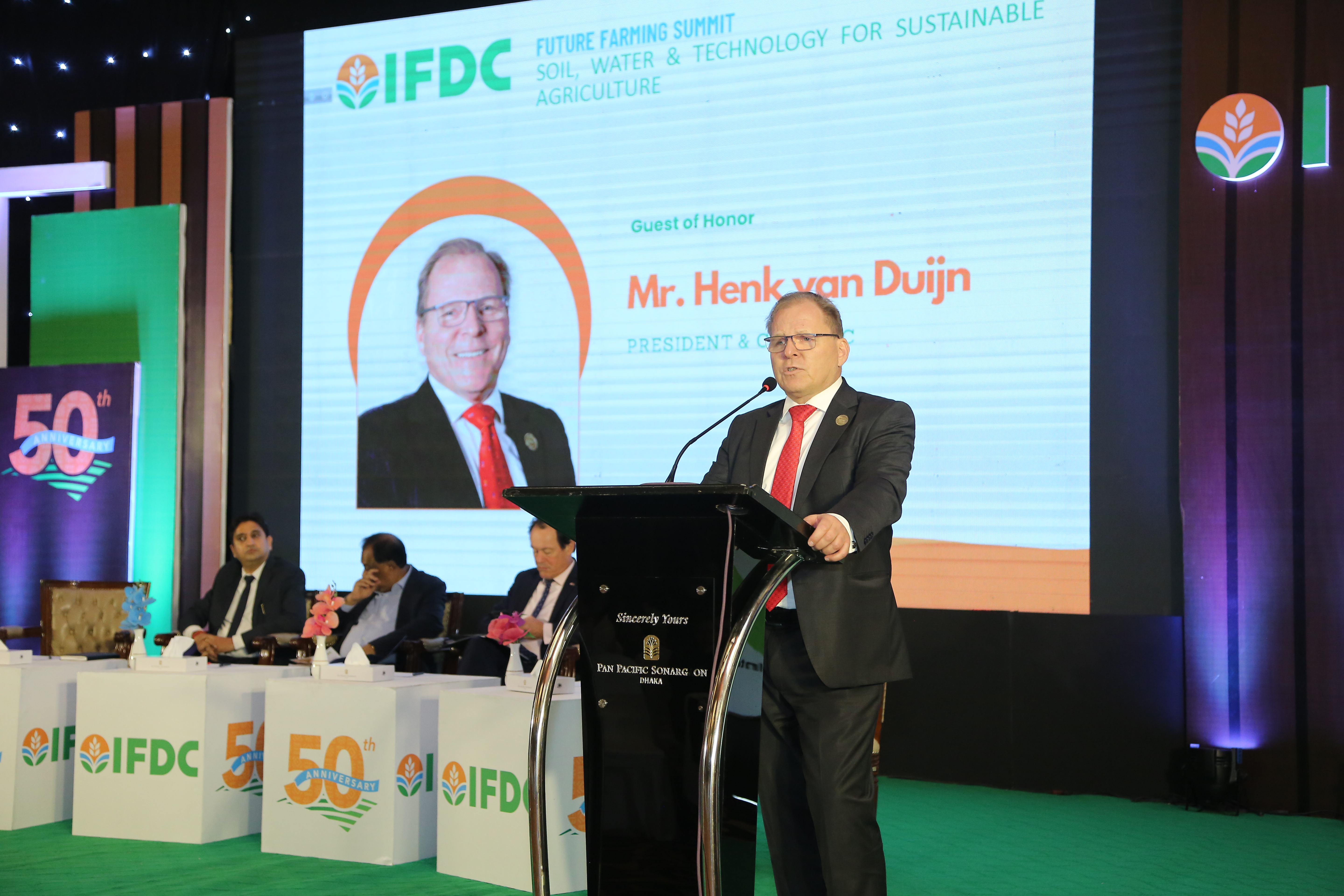
Dr. Yashpal Saharawat, Principal Scientist at IFDC, highlighted Bangladesh’s fertilizer dependency and rising subsidy costs, which have surged over the past two decades to more than U.S. $2 billion annually.
He called for a transformative approach to double nutrient use efficiency by 2035, which would not only sustain productivity but also reduce soil, air, and water pollution caused by fertilizer overuse.
As Dr. Saharawat mentioned, “Bangladesh must act now to double nutrient use efficiency, reduce pollution, and sustain productivity for the next generation.”
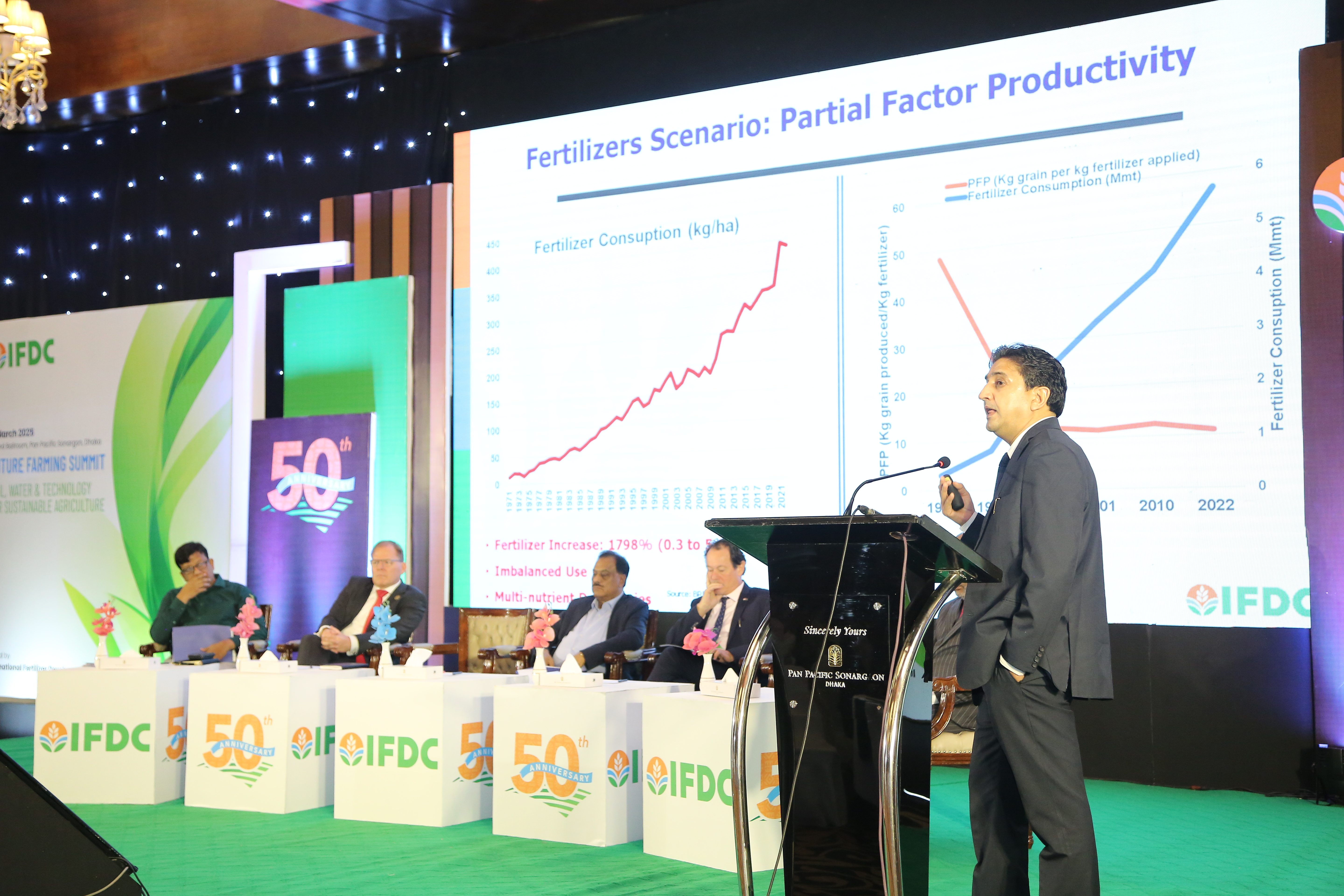
Key stakeholders, including representatives from the Danish, Swiss, and Dutch embassies, lent their support to a national vision aimed at:
- Reducing fertilizer use by 25%.
- Improving nutrient use efficiency by 10-15%.
- Saving 6,600 crore taka (U.S. $600 million) annually.
The summit underscored the importance of innovative fertilizer technologies, such as enhanced efficiency fertilizers, organo-mineral fertilizers, and mechanized fertilizer deep placement (FDP). These technologies can significantly improve nutrient absorption by plants, reduce losses to the environment, and boost yields with less fertilizer input.
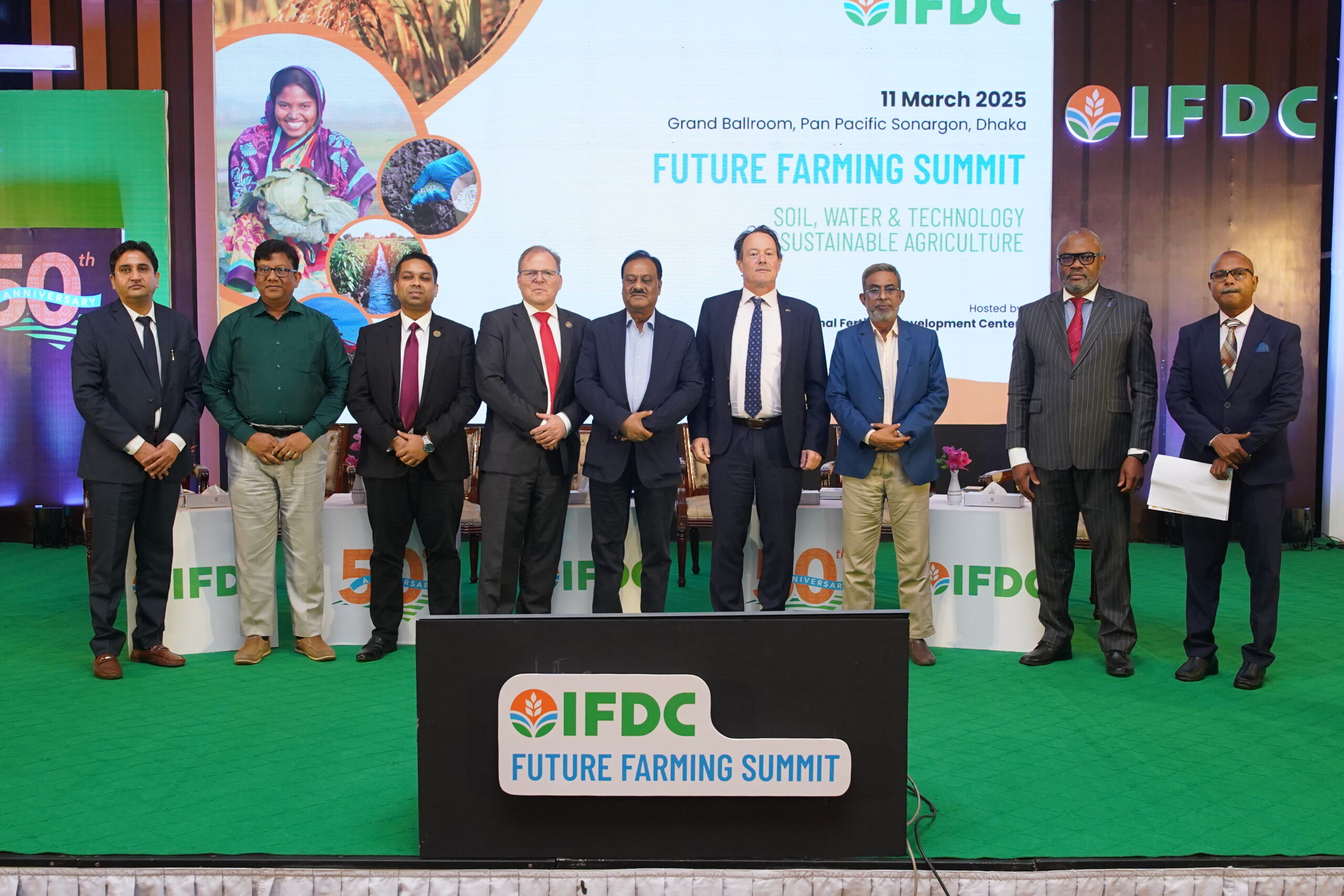
The event concluded with a thematic forum focused on collaborative strategies to protect soil health, optimize water use, and strengthen food security. The Future Farming Summit in Dhaka reinforced the urgency of transitioning toward sustainable, science-driven agricultural practices in Bangladesh.
IFDC will continue to collaborate with government agencies, development partners, and private sector actors to drive this transformation and ensure that Bangladesh’s agriculture sector remains a global leader in sustainable food production.
By reducing fertilizer overuse, improving nutrient efficiency, and promoting innovative technologies, stakeholders aim to secure a resilient, productive, and environmentally sustainable future for the country’s producers.


